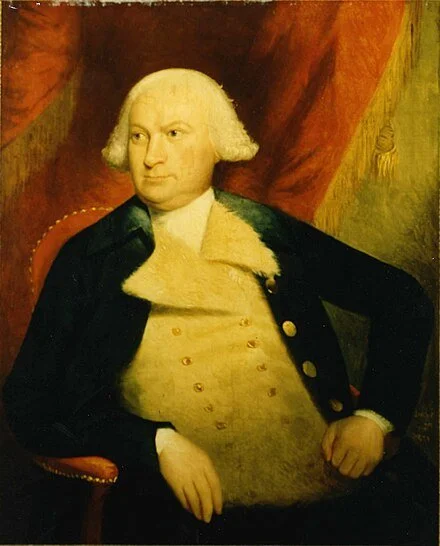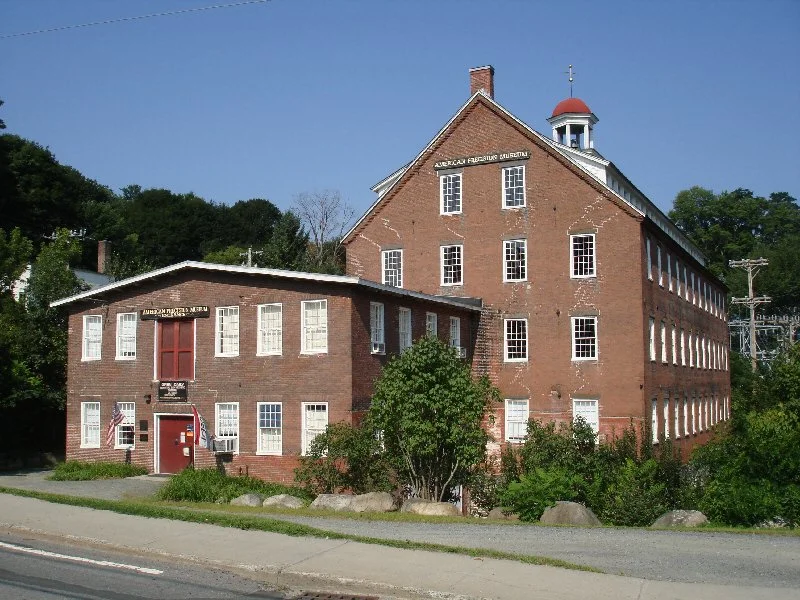
Don’t expect perfection
OIiver Ellsworth in 1785.
“Let us, my fellow citizens, take up this constitution with the same spirit of candour and liberality; consider it in all its parts; consider the important and advantages which may be derived from it, and the fatal consequences which will probably follow from rejecting it. If any objections are made against it, let us obtain full information on the subject, and then weigh these objections in the balance of cool impartial reason. Let us see, if they be not wholly groundless; But if upon the whole they appear to have some weight, let us consider well, whether they be so important, that we ought on account of them to reject the whole constitution. Perfection is not the lot of human institutions; that which has the most excellencies and the fewest faults, is the best that we can expect.’’
— Oliver Ellsworth (1745-1807), whose hometown was Windsor, Conn., was a Founding Father of the United States, lawyer, judge, politician and diplomat. He was a framer of the U.S. Constitution, senator from Connecticut, and the third chief justice of the United States. His remarks here came on Dec. 17, 1787, during the campaign to ratify the Constitution.
Oliver Ellsworth Homestead, in Windsor. It’s now a historical museum.
‘Balanced on a human scale’
Old Constitution House, in Windsor, Vt., where the Constitution of the Vermont Republic was signed, in 1777.
“When people who have never lived in New Hampshire or Vermont visit here,
they often say they feel like they've come home. Our urban center, commercial
districts, small villages and industrial enterprises are set amid farmlands and
forests. This is a landscape in which the natural and built environments are
balanced on a human scale. This delicate balance is the nature of our
’community character.’ It's important to strengthen our distinctive, traditional
settlement patterns to counteract the commercial and residential sprawl that
upsets this balance and destroys our economic and social stability."
~ Richard J. Ewald, in his book Proud to Live Here.
American Precision Museum at the old Robbins and Lawrence factory, in Windsor. The building is said to be the first U.S. factory at which precision interchangeable parts were made, giving birth to the precision machine-tool industry
Chris Powell: There’s too much ‘cultural humility’
MANCHESTER, Conn.
While the Connecticut General Assembly has never been known for political courage, the racial obsession that lately has been taking over there should have prompted some legislators to talk back to it by now.
For it has gotten ridiculous -- and dangerous.
The much-touted legislation declaring racism rather than poverty to be a "public health crisis” contains new racial jargon that has caused some legislators to wonder what is going on, but most are going along with it anyway. The bill requires state government's higher education programs to include "cultural humility education” so as to increase retention of people of color.
The bill explains "cultural humility” as "a continuing commitment to self-evaluation and critique of one's own worldview with regard to differences in cultural traditions and belief systems, and awareness of, and active mitigation of, power imbalances between cultures.”
That's not much of explanation, but it implies that one culture is as good as another and that, accordingly, power should be balanced among cultures.
Try telling that to the young women of Afghanistan, who, thanks to the 20-year intervention of the U.S. military, for a few years have gotten a look at a culture that exalts democracy, equal opportunity and freedom of conscience. Upon the imminent departure of the U.S. military, those young women will be cast back into the sexual slavery of the Taliban's theocratic fascism.
Advocating "cultural humility education” during debate on the legislation last week, Sen. Marilyn Moore (D.-Bridgeport) said: "When I see a white woman, I see a white woman. ... I want you to see me as a Black woman and understand my journey and what I've been through.”
But of course that is the very definition, history, and danger of racism -- seeing people first according to race and making presumptions about them. What Moore wants is exactly what the country has been striving to get away from since the modern civil rights movement began 70 years ago.
What Moore proposes is rank stereotyping, the refusal to see people first as individuals, to judge them, as Martin Luther King Jr. urged, by "the content of their character.” For simply by race one cannot know what people have been through and who they are.
If Moore's arrogant presumption can be made, so can the Ku Klux Klan's. Racism isn't any more tolerable when Black people promote it, even though white people then are too scared to dispute it.
Indeed, the country's problem today is too much "cultural humility," the growing fear of standing up for values that make a civilization great and keep it improving -- values like parenting, education, self-sufficiency, and color blindness. What will the country be like when Moore's "cultural humility” overthrows that culture?
The unfortunate disparities among the races in Connecticut will not be closed by "cultural humility education” any more than they will be closed by the silly propagandizing over the supposed nooses that keep getting found at the Amazon warehouse under construction in Windsor. That propagandizing seems meant mainly to publicize certain Black politicians by virtue of their bellowing about it.
At their May 26 press conference Windsor Town Council member Nuchette Black-Burke complained that the nooses have "disrupted our quality of life.” But no one's quality of life has changed on account of the cat-and-mouse game in Windsor, even as the quality of life in predominantly minority neighborhoods in Connecticut is being diminished every day by worsening crime, which few notice.
Just hours after that press conference on the nooses, a man was fatally beaten in Hartford. No one has been arrested for it. It was Hartford's 14th murder of the year. New Haven has had at least 13, Bridgeport six. Do the nooses merit more attention than these murders just because they are unusual or politically useful even though they are meaningless?
The people bemoaning the nooses pretend not to realize that not one murder in the minority neighborhoods has yet involved a noose.
The surest way to make the nooses go away is to stop giving them the publicity their maker craves and knows that he can get from opportunistic politicians who will do anything for publicity as long as it's irrelevant.
Chris Powell is a columnist for the Journal Inquirer, in Manchester.
His favorite place to live and die
Oliver Ellsworth house, in Windsor, Conn.
I have visited several countries, and I like my own the best. I have been in all the States of the Union, and Connecticut is the best State; Windsor is the pleasantest town in the State of Connecticut and I have the pleasantest place in Windsor. I am content, perfectly content, to die on the banks of the Connecticut.
-- Oliver Ellsworth (1745-1807), the third chief justice of the United States







